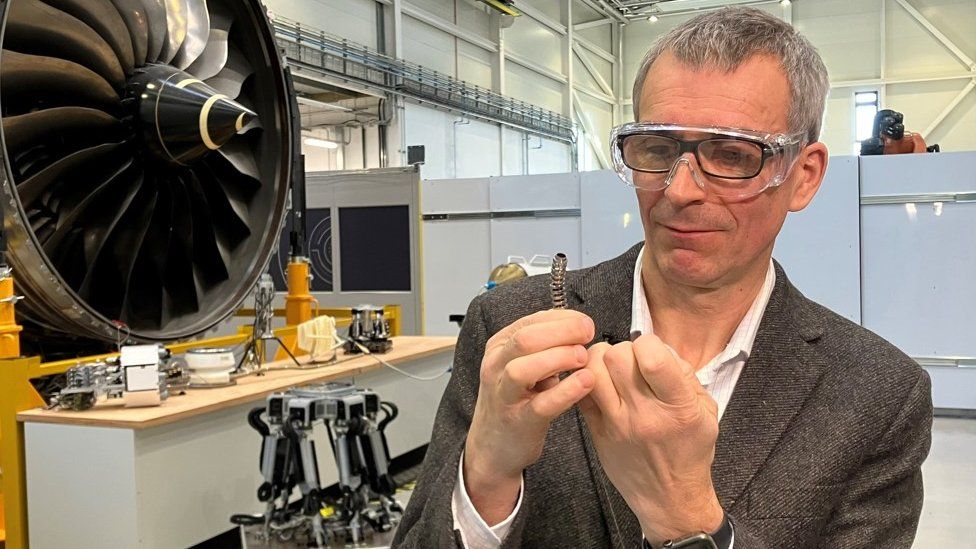

Robot snake could be used in cancer surgery in 10 years
source link: https://www.bbc.com/news/uk-england-nottinghamshire-64333828
Go to the source link to view the article. You can view the picture content, updated content and better typesetting reading experience. If the link is broken, please click the button below to view the snapshot at that time.

Robot snake could be used in cancer surgery in 10 years

A robot that imitates the flexibility of a snake could be used in cancer surgery within 10 years, experts say.
The remote-controlled robot, called COBRA, has previously been used in jet engineering and nuclear plants.
The University of Nottingham, which developed the robot, has secured funding to make the robot the first of its kind in the UK.
Prof Dragos Axinte said: "We have started early tests to see if the robot can... perform surgical procedures."
The researchers, who are collaborating with Rolls-Royce, said they had secured funding from the Engineering and Physical Sciences Research Council to adapt COBRA for use in surgery - specifically throat cancer and injury surgery.
They said that while such medical procedures were currently performed with endoscopic tools, COBRA could offer more dexterity, accuracy, and high-definition views for surgical teams.
It has been used as part of a preliminary study at a hospital in Leicester.
'Exciting direction'
Prof Axinte, who directs the team, said: "Snakes by definition are slender and it's very manoeuvrable by using a simple joystick.
"Up to now, what we have done with this technology is get into engines.
"We have been contacted by some surgeons from Leicester hospital into translating this technology into medical fields.
"The robot has potential in a broad range of applications and medicine is an exciting direction for our research to take."
The team said the ultra-slender five-metre (16ft) robot, which is only about the same thickness as a pencil - 9mm (0.35in) in diameter - could easily slither through crammed spaces and round tight bends.
Preliminary studies for COBRA's medical use have been carried out with Dr Oladejo Olaleye, a consultant ear, nose and throat and robotic surgeon at University Hospitals of Leicester NHS Trust.
The robot was tested on a human dummy to access hard-to-reach parts at the back of the throat via the mouth - locations currently inaccessible without highly-invasive surgery.
The high-definition camera provided excellent views of the throat displayed on an operating screen.
Dr Olaleye said: "Achieving clear views of throat and voice-box cancers will hopefully translate into full clearance of the tumours with less pain, quicker recovery from hospital, improved survival and better rehabilitation outcomes for our patients."
Follow BBC East Midlands on Facebook, on Twitter, or on Instagram. Send your story ideas to [email protected]
- 10 October 2014
Related Internet Links
Recommend
About Joyk
Aggregate valuable and interesting links.
Joyk means Joy of geeK